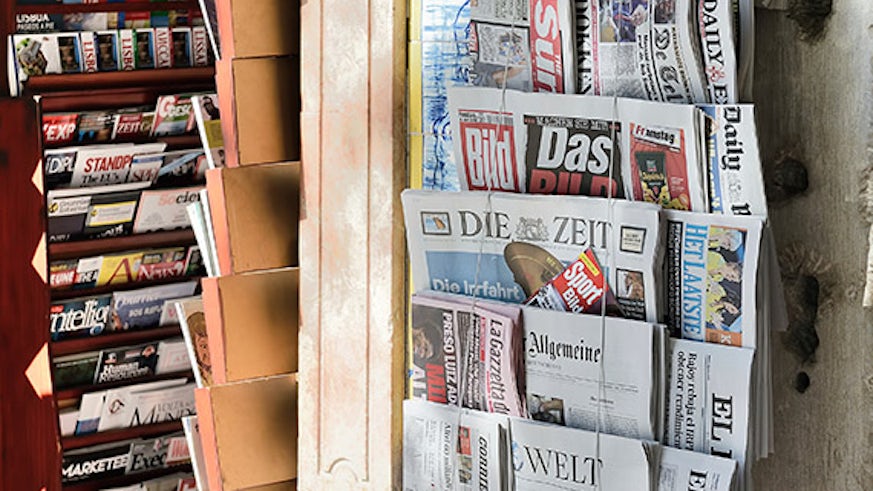British media coverage of ‘migrant crisis’ amongst the most aggressive in EU
17 March 2016

Significant differences in the way media organisations in different EU countries reported the migrant crisis in 2014 and early 2015 have been identified in new research by Cardiff University.
The report, by a team from the School of Journalism, Media and Cultural Studies examined 2000 news stories across five different European countries: Spain, Italy, Germany, Sweden and Britain.
The research identified striking differences in patterns of source access, terminology ('migrant', 'refugee' and ‘illegal’), news angles, as well as the explanations and proposed solutions to the crisis.
Media also differed widely in terms of the predominant themes to their coverage. Humanitarian themes were most common in Italian press coverage (51% of articles) and rarest in the right of centre British tabloids (Daily Mail 19%, Sun 8%, EU average 42%).
In contrast, the British right-wing press was found to feature accounts which stressed the threat that refugees and migrants posed to domestic welfare and health systems at a much higher level than the other countries in the sample (Daily Telegraph 16%, Daily Mail 42%, Sun 26%, EU average 9%)
Report co-author Dr Mike Berry of the School of Journalism, Media and Cultural Studies said, "This raw data only tells half the story.
“In the EU press the negative commentary on refugees and migrants usually only consists of a reported sentence or two from a citizen or far-right politician – which is often challenged within an article by a journalist or another source. In the British right-wing press, anti-refugee and migrant themes are continuously reinforced through the angles taken in stories, editorials and comment pieces.
"It is this consistent, hard campaigning edge which differentiated the British right-wing press from anything else in our European sample."
British television news reporting, which often focused on the plight of refugees and migrants at Calais or on the Mediterranean, was found to feature some of the most empathetic coverage in the sample.
However broadcast reports tended to frame the crisis as a problem of 'illegal migration' or 'illegal immigration' rather than one which partly involved the resettlement of refugees. This meant when discussing potential responses to the crisis, BBC and ITV reports focused on discussing the need to strengthen UK or EU borders.
The full report, which was funded by the United Nations High Commission for Refugees (UNHCR) is available from the UNHCR website. It was authored by Dr Mike Berry, Dr Inaki Garcia-Blanco and Dr Kerry Moore.